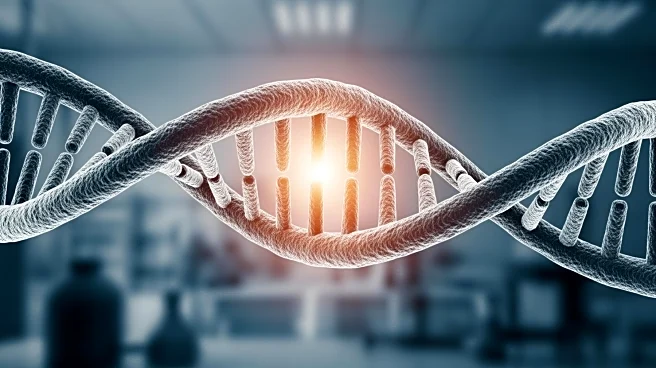What's Happening?
James Watson, the American biologist renowned for his role in discovering the double-helix structure of DNA, has passed away at the age of 97. Watson, alongside Francis Crick and Maurice Wilkins, was awarded
the Nobel Prize in Physiology or Medicine in 1962 for this groundbreaking discovery. His work laid the foundation for modern genetics and biotechnology. Watson's career was marked by significant achievements, including his leadership in the Human Genome Project. However, his legacy was later overshadowed by controversial remarks on race and intelligence, which led to the loss of several honorary titles.
Why It's Important?
Watson's discovery of the DNA double helix was a pivotal moment in science, revolutionizing the field of molecular biology and paving the way for advancements in genetic engineering and medicine. His work has had a profound impact on scientific research and biotechnology industries, influencing everything from genetic testing to personalized medicine. Despite his scientific contributions, Watson's later comments on race have sparked significant controversy, highlighting ongoing debates about ethics and responsibility in scientific discourse.
What's Next?
The scientific community continues to grapple with Watson's complex legacy, balancing his monumental contributions to genetics with the controversies surrounding his public statements. Institutions may further evaluate how they honor figures with controversial pasts, potentially influencing future policies on honorary titles and recognitions. The discourse around Watson's remarks may also prompt broader discussions on diversity and inclusion within the scientific community.
Beyond the Headlines
Watson's story underscores the ethical challenges faced by scientists whose personal views conflict with their professional achievements. His case may serve as a cautionary tale about the importance of maintaining ethical standards and cultural sensitivity in scientific communication. The ongoing debate about his legacy could influence how future generations of scientists are educated about the social responsibilities that accompany scientific discovery.










